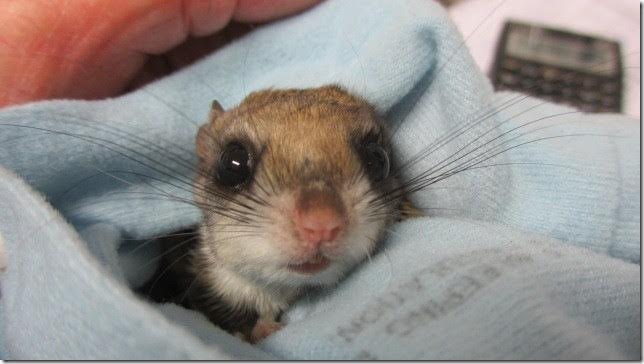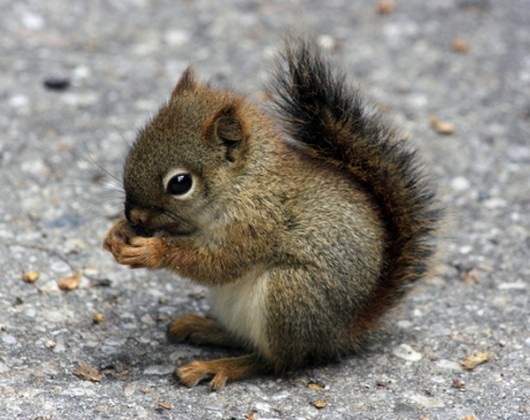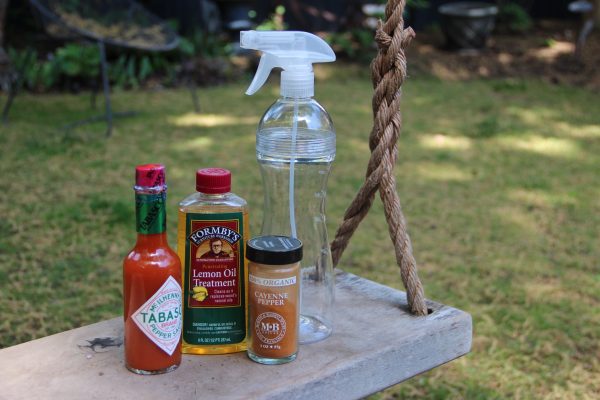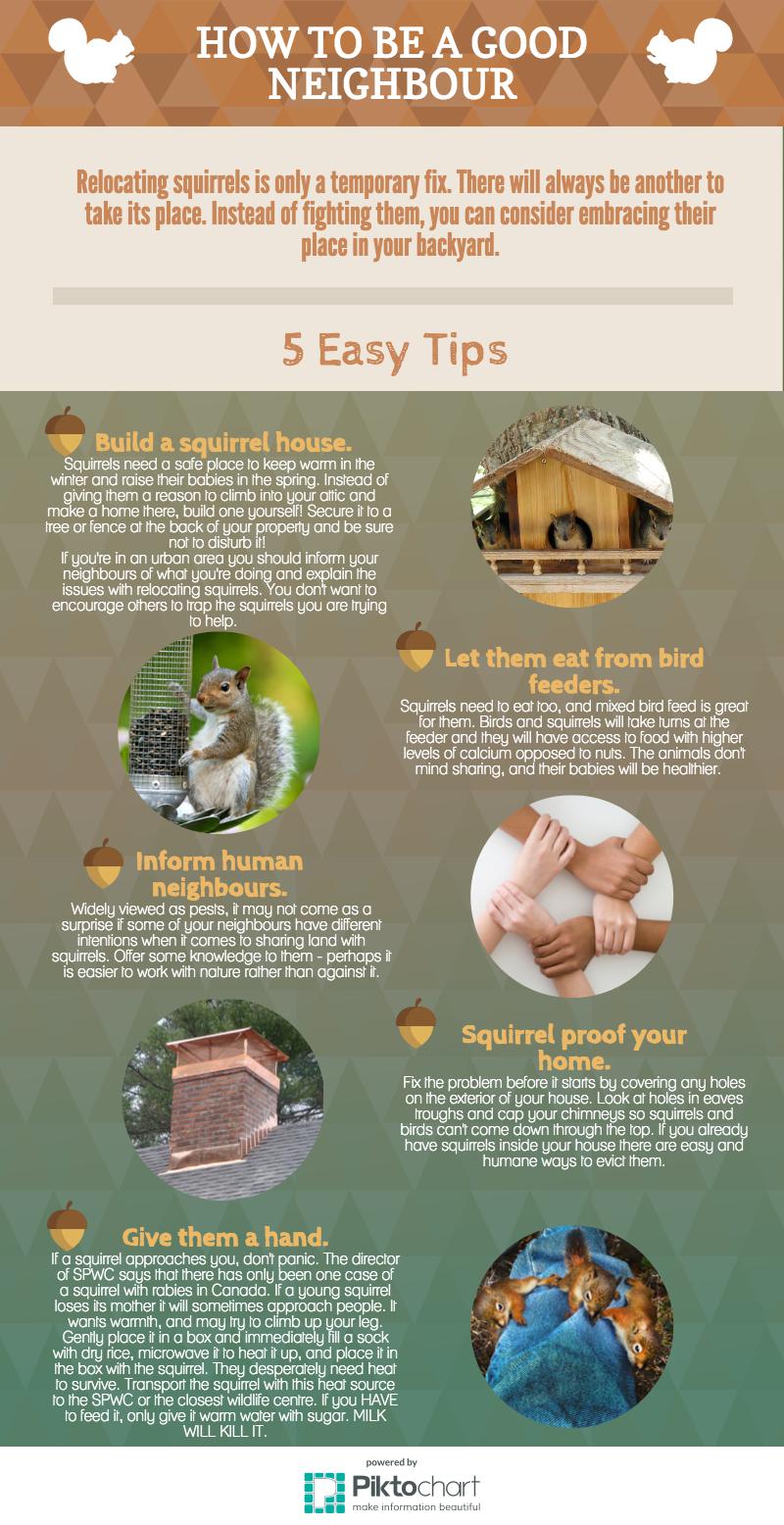
Flying squirrel in care at Sandy Pines Wildlife Centre. Photo by Sandy Pines Wildlife Centre.
By Jessica Clement [1]
NAPANEE – Another Squirrel Appreciation Day has come and gone, but we still need to learn to live in peace with our furry-tailed friends.
Squirrel Appreciation Day landed on our calendars last Saturday and a local wildlife centre has hope that the relationship between human and squirrel still has room to grow.
Native to Southern Ontario, the grey squirrel is notorious to garden enthusiasts and is often labelled a “pest”.
QNet News spoke to Sue Meech, the director of the Sandy Pines Wildlife Centre [2] in Napanee who told us about the three squirrel populations we have in the area – the grey, red and flying squirrel which is part of the “species at risk [3]” list.
Red squirrels and flying squirrels don’t tend to get into nearly as much trouble as greys according to Meech, and don’t often stray from the countryside because of their environmental and food needs. However, greys have no problem living in urban settings.
“The biggest problem we have is people trapping and relocating them or shooting them with pellet guns. We’ve had many squirrels brought in here with bullets in them, it’s awful,” said Meech. Another issue she said they face is people bringing in orphaned squirrels. “Sometimes it’s a natural accident, like the mother getting hit by a car, but usually the mother has been either trapped and relocated or killed by a person.” On the other hand, she also says people will sometimes mistake squirrels as orphans when they aren’t.
Any trapping, relocating or killing of squirrels is useless said Meech. Every time you remove one it puts a vacancy sign up for another.
“There’s no void in nature. If there’s an empty house do you think other squirrels will ignore it? Of course not. You’re simply giving an innocent animal a death sentence for no good reason.” Relocating squirrels to alien territories offers them up to other unwelcoming squirrels, as well as takes away their entire food cache that they rely on in the winter.
Meech said that the spring is when people see these animals as the biggest nuisance. It is also when they are becoming mothers.
“Fifty per cent of the worlds animals are pregnant and having their babies in the spring, and this always seems to surprise people when they do something about a mother and then find the babies helpless later – it’s not rocket science.”
At that time squirrels will take refuge in attics, safe from predators, for the weeks their babies are most vulnerable. They are born completely blind and rely on their mothers.
Unfortunately once they get inside a house, this is where they can really become pests. Squirrels can sometimes chew on electrical circuits and do damage to the home, in which case a pest control company is usually called.

Source: http://www.spca.bc.ca
Meech recommends Greenshield Pest Control [4] in the Belleville area and said that they aren’t interested in killing squirrels when they evict them from homes. They also know not to release them into the wild again until winter passes, which Meech said could be deadly to squirrels that have been living inside. Instead, Green Shield will bring the squirrels to the SPWC to be cared for until the weather subsides. King Wildlife Solutions [5] also deals with the removal of squirrels in a humane way. “They’re good at putting in one-way doors so that the animals can get out but not back in,” she said.
“If someone is having an animal problem it is important for them to call us at the SPWC because we can often talk them through getting the animals to leave without having to call a pest control company,” Meech said. “Squirrels hate bright lights and noise, so putting a light in your attic along with a radio on a talk channel should be enough to drive them out safely.” She says this technique is also useful for deterring other animals like skunks and raccoons.
If you don’t want animals coming in, maintaining your house is key according to Meech. She advises people to inspect the outsides of their homes, looking for holes in eaves troughs and capping their chimneys. But what if you want to keep them out of your garden? Well, the answer is oranges. “Spreading orange peels around the edges of your garden will keep them out, squirrels hate them. Mothballs work too I hear.”
Yard and garden deterrents – store bought and DIY – can be poisonous, cruel and the squirrels could die a long and painful death Meech warned.

Source: http://www.quickanddirtytips.com/
When animals are brought in to the SPWC Meech said they release them back into the wild as quickly as possible as long as they are well, always putting them back within 15 kilometres of where they were extracted from, although never back into the city. “For anyone else, trapping or relocating squirrels further than a kilometre is illegal.”
“The squirrels were there long before people were. They have an important place in the natural world,” she said, and with no shortage in sight she says it is time for people in the community to embrace their place in the world and perhaps even enjoy having them around. “I think people are just out of tune with nature. We need to live with animals in our back yard, they are part of our environment.”
“I like to watch them, I enjoy their antics, they hang by their back feet completely upside-down and reach into my feeder and take the food. But, the birds still come, they take turns. When the squirrels are there the birds are gone and when the squirrels are gone the birds come. There’s room for everyone.”

How to share your yard with squirrels according to Sue Meech, Director of Sandy Pines Wildlife Centre.